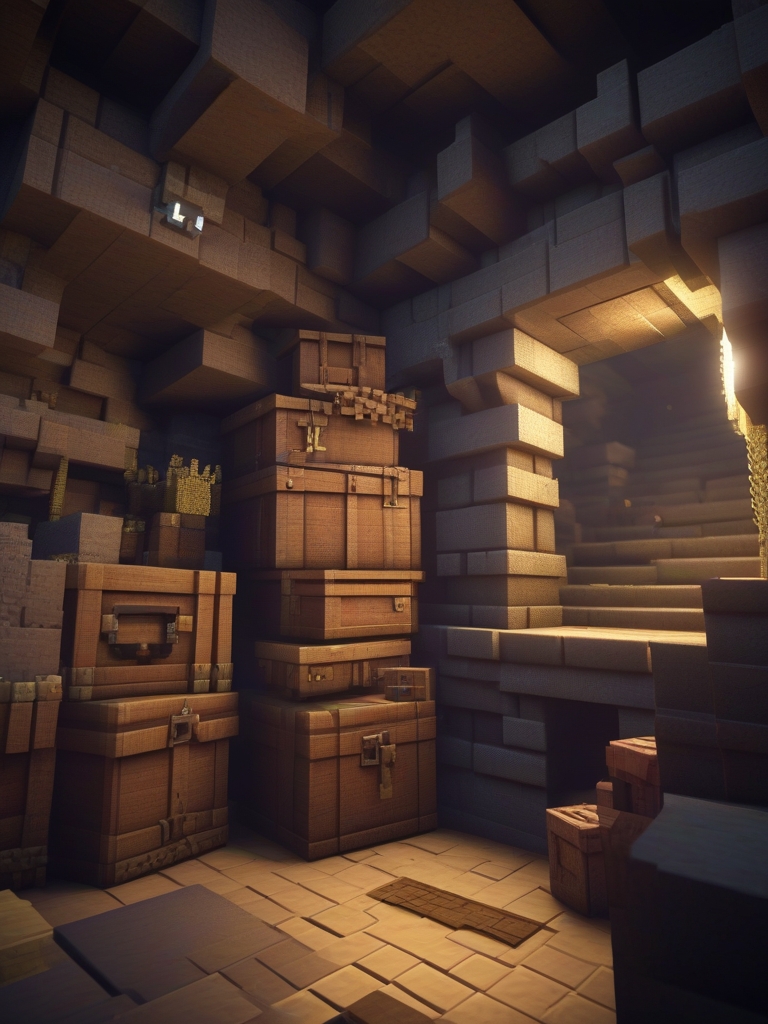In the village of Thornwick, where the sea gnashed its teeth on rocky shores and seagulls screamed like lost souls, there existed stories whispered in the dim light of hearths. These were not the type of stories that could be knit into the warm fabric of day. They were tales of shadow, spun with the dark thread of night: tales of the Smuggler’s Cavern.
Beneath the deceptive simplicity of Thornwick, jagged veins of caverns pulsed against the steady heartbeat of the usual and the known. It was said that one could find, hidden in their echoing bowels, treasures as wondrous and varied as the stars overhead. It was here that a ragtag band of village youths—Lyra, Jasper, Eloise, and Tom—armed with nothing but their wits and the reckless bravery of those who have not yet learned to fear the dark, found themselves on a damp evening in October.
“This could be it!” Jasper whispered as they stood before an old oaken door, barely hanging onto its rusted hinges in the abandoned boathouse at the edge of the village. They had known of the smugglers, of course—less from what was said than from what wasn’t, their presence felt in missing items and the odd, too-quickly silenced conversation.
With the courage that comes from the ill-considered decisions of youth, they pushed open the door. The scent of must and brine met them, as if the sea itself had been trapped there, waiting for release. What began as an adventure, became, with each step, a descent into a myth they all half-believed.
The cavern was a network of shadows and whispers. The walls themselves seemed to breathe heavy, secret-laden breaths. Shelves hewn from the rock itself bore the weight of items masked by dust and neglect: coins that shone with the forgotten faces of ancient empires, jewelry that hummed with the memory of long-lost loves, and statues that seemed to flicker in the corner of one’s eye, as though just about to weep.
And, of course, there were the traps. Clever, cruel devices of iron and wood crafted by those paranoid enough to hide but greedy enough to hoard. They would have turned back, then, had they not found the diary—faded leather etched with the name “Elias Crane,” a smuggler of local legend known as much for his wealth as his wickedness.
Reading by the flicker of their torches, wrapped in the thick, salt-soaked air, the pages revealed a trail of thefts and betrayals that stretched like a map through the cavern’s heart. It becomes a path, each chapter a guidepost, each stolen trinket a star in its constellated greed.
Driven now by purpose more than thrill, Lyra and her friends set upon the task that tethered them to the myth, replacing fear with resolve. They would return each artifact, each piece of pilfered history, to where it truly belonged, resetting the scales Elias Crane had so selfishly upset.
It was about more than adventure—it was about justice. And as they worked, night deepening around them like a cloak, they moved quietly and carefully, aware of the weight of their undertaking. They were thieves of a different sort, stealing back into the light what was meant to be cherished in the sun, not hidden in the bowels of the earth.
By dawn, the cavern had been swept as bare as an emptied chest. The treasures once shrouded in shadow breathed in the morning air, no longer prisoners of the sunken depths. As the sun rose, casting a golden glow across the village of Thornwick, the group emerged from the cavern, weary but triumphant. Theirs was a secret now, a quiet rebellion against the greed that had festered beneath their homes.
And so, the legends of Thornwick grew, ribbons of truth woven into the fabric of the village’s history—a new tale to be told by the hearth, new whispers in the dim light. The story of a night when children turned guardians, guided by the flickering light of adventure, and a desire to right the veiled wrongs of whispered histories.
